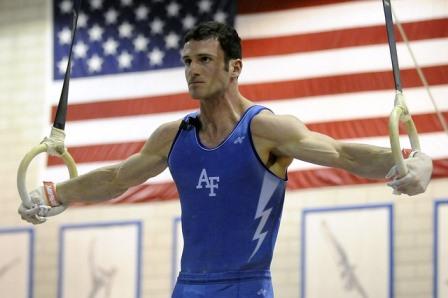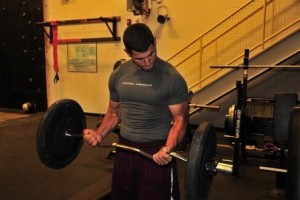- Calls to this hotline are currently being directed to Within Health, Fay or Eating Disorder Solutions
- Representatives are standing by 24/7 to help answer your questions
- All calls are confidential and HIPAA compliant
- There is no obligation or cost to call
- Eating Disorder Hope does not receive any commissions or fees dependent upon which provider you select
- Additional treatment providers are located on our directory or samhsa.gov
Male Professional Athletes & Eating Disorder: A Lesser Told Story

The struggle of men with eating disorder diagnoses is a topic that is not spoken about enough. Male athletes in particular often struggle with eating disorder in silence.
For many that struggle with mental illness, conversations that increase the visibility of their disorder help to normalize their pain and allow them to feel more comfortable opening up. For the 1.5 million men in the United States that struggle with bulimia nervosa, their pain is less commonly discussed, leading to many of them grappling with their disorder in isolation [1].
In fact, of that, 60% don’t seek the help that they need [2]. The more men that speak up about their experience with eating disorders, the more others are willing to speak out about their own stories.
One Male Athlete and His Struggle with Eating Disorder
 Eight years ago, English cricket captain, Andrew Flintoff, opened up about his own bulimia nervosa diagnosis. Most recently, he continued this conversation in the documentary “Freddie Flintoff: Living with Bulimia.”
Eight years ago, English cricket captain, Andrew Flintoff, opened up about his own bulimia nervosa diagnosis. Most recently, he continued this conversation in the documentary “Freddie Flintoff: Living with Bulimia.”
Flintoff reports that “he has now developed a ‘coping mechanism’ which means he mostly manages to avoid the urge to make himself sick after eating,” yet, he acknowledges having engaged in disordered behaviors as recently as this year [2].
Flintoff also shares the ways in which he has hidden his disorder from those that would support him in recovery, such as his Wife [2]. Flintoff’s journey provides important insight into eating disorders in male athletes, as this population is particularly vulnerable to eating disorders.
Eating Disorders in Men
As one study notes, “more men than women are motivated to lose weight, or sometimes to gain weight, to achieve optimal performance in sports, and even in some cases, to be eligible to compete [3].”
Male athletes are also more likely to experience Muscle Dysphoria, a subtype of Body Dysmorphic Disorder, in which an individual focuses specifically on muscle mass or body size [3].
Research finds that “men who struggle with muscle dysmorphia, struggle with an eating disorder as well [3].” Not only that, the documentary and the authenticity of Flintoff’s up-and-down struggle with bulimia nervosa provides a realistic look at recovery and relapse.
Men that watch this documentary and experience eating disorder beliefs and behaviors may feel comforted to know they are not alone while also feeling less internalized shame about their disorder and possible lapses back to ED behaviors.
Resources:
[1] Stranberg, M. (2020). Four things you might not know about men and bulimia. Walden Behavioral Care. Retrieved from https://www.waldeneatingdisorders.com/blog/four-things-you-might-not-know-about-men-and-bulimia/. [2] Marsden, R. (2020). Andrew Flintoff reveals he is still battling bulimia eight years after he first opened up about the issue. Daily Mail UK. Retrieved from https://www.dailymail.co.uk/tvshowbiz/article-8757881/Andrew-Flintoff-reveals-battling-bulimia-eight-years-opening-issue.html. [3] Strother, E. Et al. (2012). Eating disorders in men: under diagnosed, under treated, and misunderstood. Eating Disorders, 20:5.About the Author:
 Margot Rittenhouse, MS, PLPC, NCC is a therapist who is passionate about providing mental health support to all in need and has worked with clients with substance abuse issues, eating disorders, domestic violence victims, and offenders, and severely mentally ill youth.
Margot Rittenhouse, MS, PLPC, NCC is a therapist who is passionate about providing mental health support to all in need and has worked with clients with substance abuse issues, eating disorders, domestic violence victims, and offenders, and severely mentally ill youth.
As a freelance writer for Eating Disorder Hope and Addiction Hope and a mentor with MentorConnect, Margot is a passionate eating disorder advocate, committed to de-stigmatizing these illnesses while showing support for those struggling through mentoring, writing, and volunteering. Margot has a Master’s of Science in Clinical Mental Health Counseling from Johns Hopkins University.
The opinions and views of our guest contributors are shared to provide a broad perspective on eating disorders. These are not necessarily the views of Eating Disorder Hope, but an effort to offer a discussion of various issues by different concerned individuals.
We at Eating Disorder Hope understand that eating disorders result from a combination of environmental and genetic factors. If you or a loved one are suffering from an eating disorder, please know that there is hope for you, and seek immediate professional help.
Published November 30, 2020, on EatingDisorderHope.com
Reviewed & Approved on November 30, 2020, by Jacquelyn Ekern MS, LPC

The EatingDisorderHope.com editorial team comprises experienced writers, editors, and medical reviewers specializing in eating disorders, treatment, and mental and behavioral health.

